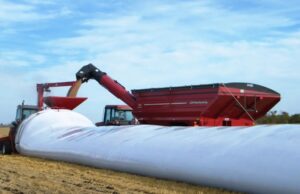Ordinary fuel ethanol is a high-octane spirit received through fermentation of sugar, which in its turn is received from grain starch, e.g. from corn or wheat, sugar cane or beet. Bioethanol is also received by means of fermentation of sugars received from plant fiber of renewable feedstock sources – wood, straw, etc.
At present, many states in the world use ethanol in large amounts as transport fuel – e.g. in Brazil. 60% of overall ethanol volumes produced in this state is sold in a hydrate form (93% ethanol and 7% water), which is a complete equivalent of petroleum used in automobile engines. The remaining 40% of ethanol are sold in a water-free form mixed with petroleum in proportion of up to 24%.
This paper describes techniques of ethanol production both from food stuff used as traditional feedstock and from the cellulose biomass that currently attracts much attention.
Burning ethanol gives 10 times less carbon dioxide than burning petroleum (note that carbon dioxide is one of the factors causing greenhouse effect and global warming). Ethanol is non-toxic and water-soluble. In the USA, Sweden and Brazil, ethanol is added to petroleum to decrease carbon dioxide emission. It is considered to be more economic and stable component of this mixture.
Unlike methyl-tert-butyl ether, which the majority of states have already refused to use, ethanol does not contaminate surface waters. If petroleum is poured, ethanol is decompounded quicker than other component and is not harmful for environment.
Ethanol production can be organized in rural areas thus creating so necessary workplaces and incomes to the local and national budget; ethanol can bring a valuable contribution in energy and economic safety of the state and is the best solution for fighting gas emissions that cause greenhouse effect.
When the price of mined fuel is growing, manufacturing cost of bioethanol is constantly decreasing due to introduction of more economic plant species and innovations aimed to decrease the cost of spirits manufacture. One of the main advantages of ethanol is that transfer to this kind of fuel allows use of the existing infrastructure (oil bases, filling stations, etc.).
Ukraine is a large manufacturer of food spirit. However, unfortunately a large number of plants is currently under-loaded or not working at all and the existing state monopoly on production, export and import of spirits is a serious obstacle for development of this branch.
As of today, the domestic market uses two principal groups of petroleum mixture. The largest of them is the one received through a mix of low-octane petroleum with methyl-tert-butyl ethers (MTBE) admixtures. The second group that has recently emerged is received with the help of ethyl-tert-butyl ethers (ETBE). Both petroleum groups have identical marking and are known in Ukrainian market as А-92Ек, А-95Ек and А-98Ек, and in the world – as Euro 2. Nonetheless, in reality they have a significant difference – when compared to the fuel without admixtures or with MTBE fuel, petroleum received with the help of ETBE decreases environmental burden by one third and halves the level of environmentally and technically harmful “steam stoppers” in the engine in summer. Thus, the government decided to promote production of more environmentally friendly types of fuel. In accordance with the recent legislative amendments, excise duty rate has been minimized for those kinds of Euro 2 petroleum that were received with the help of two types of admixtures – bioethanol (dehydrated ethyl alcohol) and ethyl-tert-butyl ether (ETBE). Starting form January 1, 2007 there has been introduced a zero rate on bioethanol whereas for the kinds of petroleum received with the help of the aforementioned admixtures the excise duty will be twice as low as the previous rate – from the current 60 EUR/t to 30 EUR/t …
For more information, please, see: https://proagro.com.ua/eng/art/4012929.html






